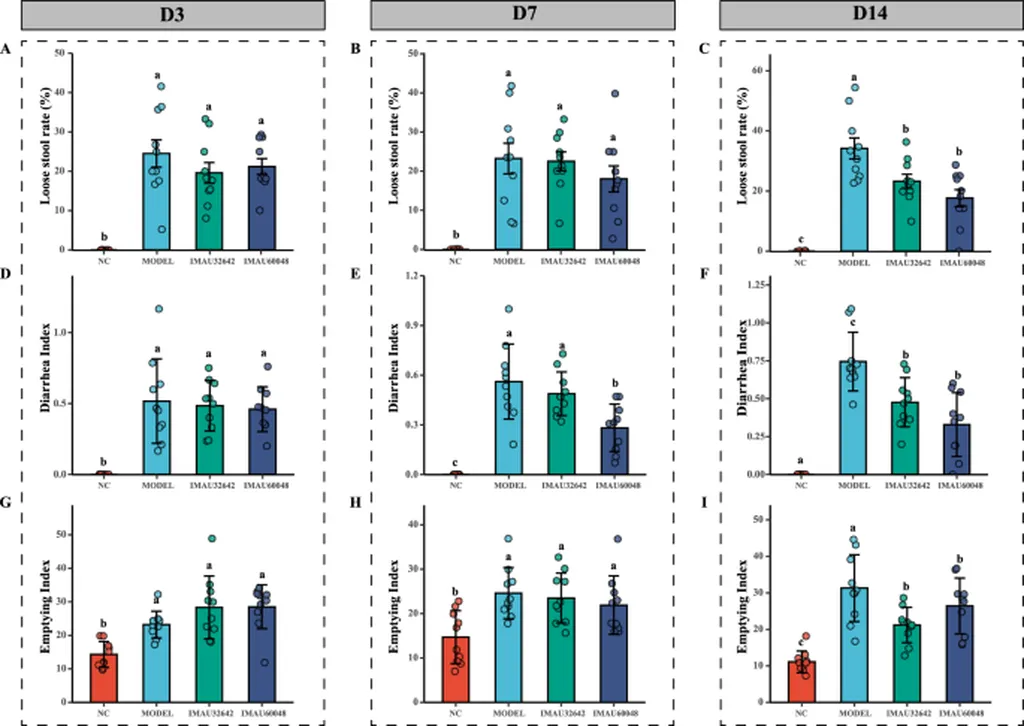In a groundbreaking study published in *npj Science of Food*, researchers have uncovered the potential of brown fermented milk to alleviate diarrhea through unique metabolomic mechanisms. The research, led by Dandan Wang from the Key Laboratory of Dairy Biotechnology and Engineering at Inner Mongolia Agricultural University, offers promising insights into the therapeutic benefits of this fermented dairy product, with significant implications for the agriculture sector.
Diarrhea remains a global health challenge, impacting both human well-being and productivity. The study employed a mouse model to investigate the effects of brown fermented milk on diarrhea symptoms and inflammatory responses. The findings revealed that brown fermented milk significantly reduced loose stool rates and inflammatory responses, highlighting its potential as a therapeutic intervention.
“Our research demonstrates that brown fermented milk can play a crucial role in managing diarrhea and its associated inflammatory responses,” said lead author Dandan Wang. “The metabolomic analysis identified 37 metabolites associated with the therapeutic effects, providing a deeper understanding of the underlying mechanisms.”
The study compared two treatments, IMAU32642 and IMAU60048, both of which significantly alleviated diarrhea symptoms. Notably, the levels of the anti-inflammatory cytokine IL-10 were significantly elevated, mitigating the inflammatory response. Metabolomics analysis further revealed that specific metabolites such as diaminopimelic acid, 2-hydroxy-3-methoxystrychnine, and uric acid were inversely correlated with loose stool rates and pro-inflammatory cytokines IL-6 and IL-1β, while positively correlating with IL-10 levels.
Among the groups, IMAU60048 showed a more significant ability to regulate inflammation, highlighting its potential as a therapeutic intervention. “The distinct regulatory effects of IMAU60048 on inflammation open new avenues for developing targeted therapies,” added Wang.
The commercial implications of this research are substantial for the agriculture sector. The dairy industry could benefit from the development of specialized fermented milk products with enhanced therapeutic properties. This could lead to new market opportunities and increased demand for dairy products with health benefits, ultimately boosting the agricultural economy.
Furthermore, the study’s findings could pave the way for future research into the metabolomic mechanisms of fermented dairy products. Understanding these mechanisms could lead to the development of more effective and targeted treatments for diarrhea and other inflammatory conditions.
As the agriculture sector continues to evolve, the integration of advanced biotechnological approaches, such as metabolomics, will be crucial in unlocking the full potential of dairy products. This research not only advances our understanding of the therapeutic benefits of brown fermented milk but also underscores the importance of continued investment in agricultural biotechnology.
In conclusion, the study published in *npj Science of Food* by Dandan Wang and her team at Inner Mongolia Agricultural University offers valuable insights into the role of brown fermented milk in alleviating diarrhea. The research highlights its anti-inflammatory properties and potential underlying mechanisms, paving the way for future developments in the field and significant commercial opportunities for the agriculture sector.

